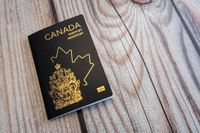OTTAWA — In a significant shift in travel advisories, the Canadian government has updated its guidance for citizens visiting the United States, requiring anyone planning to stay for more than 30 days to register with U.S. authorities. This advisory, issued on March 21, 2025, has been prompted by changes in U.S. immigration enforcement policies under President Donald Trump, reflecting growing political tensions between the two nations.
Effective April 11, 2025, the registration rule mandates that Canadians and other foreign nationals must ensure they are officially registered upon entering the U.S. The Government of Canada warns that failure to comply with this new requirement could lead to serious consequences, including penalties, fines, and potential misdemeanor charges. This marks a significant alteration of the historically lenient travel norms that have allowed Canadians to visit the U.S. for extended periods without such requirements.
In the advisory, the government specifically noted, "Canadians and other foreign nationals visiting the United States for periods longer than 30 days must be registered with the United States Government. Failure to comply with the registration requirement could result in penalties, fines, and misdemeanor prosecution." Such a rigorous requirement has not previously been in place for Canadians, who have enjoyed up to six months of visa-free travel.
This change comes at a time of heightened scrutiny at U.S. borders, a sentiment echoed by multiple European allies who have updated their own travel advisories for the U.S. Recent actions reflect concerns over intensified visa restrictions and shifts in federal guidelines affecting non-binary and transgender travelers. Countries like Germany, the United Kingdom, Denmark, and Finland have issued similar warnings regarding travel to the U.S., highlighting these new challenges as significant barriers for travelers.
According to a spokesperson for Germany's foreign office, "The final decision as to whether a person can enter the United States rests with the American border authorities." This statement underlines the importance of adhering to all entry conditions, as failure to comply may result in detainment at the border, a situation that has been increasingly reported among travelers, including Canadians.
In particular, the new advisory for Canada came after reports surfaced of Canadians facing detention at U.S. border checkpoints owing to visa concerns. The advisory cautions travelers: "Please ensure you understand the registration requirements that now apply before your travel plans are executed." Many Canadian snowbirds, who often winter in warmer southern climates, are now reportedly rethinking their travel plans amidst the tension and complications posed by the new regulations.
The updates arrive in the wake of significant changes regarding transgender and nonbinary individuals under U.S. immigration policies. An executive order signed by Trump earlier in the year rescinded the ability for these individuals to update their passport sex designation, which now follows a strict binary system of male or female. Such changes have prompted additional concerns across the globe, as countries improve their travel advisories for their citizens regarding interactions with U.S. immigration systems.
Including the renewed attention on the experiences of marginalized travelers, Denmark's foreign ministry has advised: "If your passport has the gender designation X or you have changed gender, it is recommended to contact the U.S. embassy prior to travel for guidance on how to proceed." This advisory echoes the necessity of careful preparation and understanding some of the limitations that may exist when entering the U.S. based on current policies.
Furthermore, the Canadian government has been revising its advisory stance not just for the United States but also for China. Following alarming news that four Canadian nationals were executed in China amidst their arrests linked to drug-related charges, Foreign Affairs Minister Mélanie Joly has issued a stern warning for Canadians traveling there: "Exercise a high degree of caution," especially for those with dual citizenship who may be denied access to consular services if they present themselves on a Chinese passport.
These developments highlight the increasingly precarious travel landscape for Canadians and others facing potential legal and bureaucratic challenges abroad. With ongoing tensions over trade disputes and President Trump's contentious rhetoric—such as suggesting Canada should become the 51st U.S. state—Canadians are reconsidering whether their vacations south of the border are worth the hassle and risk.
As the new April 11th deadline approaches for registration in the U.S., travelers are urged to review their paperwork carefully and verify their registration status online through the U.S. Customs and Border Protection (CBP) website. This forward-thinking approach could alleviate potential hassles encountered at the border and support a smoother travel experience amidst these significant policy changes.
For Canadians, keeping abreast of these travel advisories is crucial, especially as geopolitical tensions influence over border relations and conditions. Now more than ever, all travelers should be armed with the necessary understanding of the regulations they face when deciding to journey across international lines.






